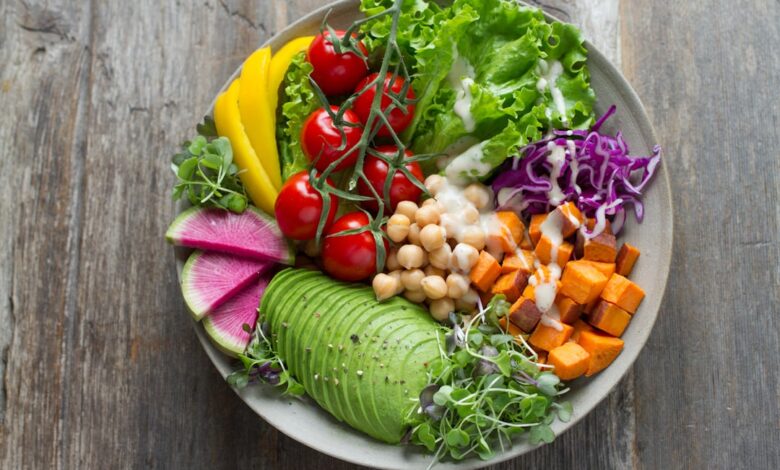Best Dairy Free Cheese

So, you’re ditching dairy but dreaming of cheesy goodness? You’re not alone! Whether it’s due to lactose intolerance, a vegan lifestyle, or just wanting to try something new, the world of dairy-free cheese has exploded with options. As someone who’s navigated the dairy-free aisle for years, let me guide you through the best of the best.
What Makes a Great Dairy-Free Cheese?
Before we dive into specific brands, let’s talk about what makes a dairy-free cheese truly shine. It’s not just about mimicking the taste of dairy cheese – it’s about creating a delicious and satisfying experience in its own right. Here are a few key factors:
- Taste: This is the big one! Does it have that cheesy flavor you crave? Does it complement other foods well?
- Texture: Is it smooth and creamy, melty and stretchy, or firm and sliceable? The texture greatly impacts how you’ll use the cheese.
- Ingredients: What’s it made from? Common bases include nuts (like cashews and almonds), soy, coconut oil, tapioca starch, and vegetable oils. Look for options with minimal processed ingredients.
- Melting Ability: If you’re planning on making pizza or grilled cheese, melting is essential. Some dairy-free cheeses melt beautifully, while others just turn into a gooey mess.
- Versatility: Can you use it in a variety of dishes? Is it good on crackers, in sandwiches, or cooked into recipes?
Top Contenders in the Dairy-Free Cheese Aisle
Alright, let’s get to the good stuff! Here are some of my favorite dairy-free cheeses, categorized by their base ingredients and uses:
Cashew-Based Cheeses
Cashew-based cheeses are known for their creamy texture and rich flavor. They often have a slightly nutty taste, which can be a plus or a minus depending on your preferences.
Miyoko’s Kitchen Cultured Vegan Butter and Cheese: Miyoko’s is a game-changer in the dairy-free world. Their cashew-based cheeses are fermented, giving them a tangy, complex flavor similar to traditional dairy cheese. They offer a range of options, from mozzarella and cheddar to brie and pepper jack. These are great for cheese boards, sandwiches, and even melting (some varieties melt better than others).
Treeline Cheese: Treeline also makes excellent cashew-based cheeses. They have a wider variety of soft cheeses, including flavored options like scallion and herb. Treeline cheeses are perfect for spreading on crackers or bagels.
Coconut Oil-Based Cheeses
Coconut oil-based cheeses are often used as a base for melting cheeses because coconut oil provides a good source of fat that helps them achieve a similar texture and melting point to dairy cheese. These cheeses typically don’t have a strong coconut flavor.
Violife: Violife is a popular brand that uses coconut oil as its base. They offer a wide range of cheeses, including cheddar slices, mozzarella shreds, parmesan wedges, and feta blocks. Violife cheeses melt well and are a great option for pizzas, quesadillas, and grilled cheese sandwiches. Their feta is especially popular for salads and Mediterranean dishes.
Daiya: Daiya is another well-known brand that uses tapioca starch and coconut oil. They offer a variety of shreds, slices, and blocks, including mozzarella, cheddar, and pepper jack. Daiya cheeses have improved significantly over the years and melt pretty well, making them a decent choice for everyday cooking.
Soy-Based Cheeses
Soy-based cheeses were some of the earliest dairy-free options available. They can sometimes have a slightly beany flavor, but many brands have perfected their recipes to minimize this.
Follow Your Heart: Follow Your Heart makes a variety of soy-based cheeses, including slices, shreds, and blocks. Their provolone and mozzarella slices are good for sandwiches and paninis, while their cheddar shreds are a decent all-purpose option. They also make a great vegan mayo!
Tips for Choosing the Right Dairy-Free Cheese
With so many options available, it can be overwhelming to choose the right dairy-free cheese. Here are a few tips to help you make the best decision:
- Read the ingredients list carefully: Pay attention to the base ingredients and any additives. If you have any allergies, be sure to check for potential allergens.
- Consider your intended use: Are you looking for a cheese to melt on pizza, spread on crackers, or add to a salad? Different cheeses are better suited for different purposes.
- Start with smaller quantities: Buy a small amount of a new cheese to try before committing to a larger purchase.
- Don’t be afraid to experiment: Try different brands and varieties to find your favorites.
- Check online reviews: See what other people are saying about the cheese before you buy it.
Beyond Store-Bought: Making Your Own Dairy-Free Cheese
If you’re feeling adventurous, you can even try making your own dairy-free cheese at home! There are tons of recipes online that use ingredients like cashews, almonds, and even potatoes. Making your own cheese allows you to control the ingredients and customize the flavor to your liking.
Dairy-Free Cheese and Your Health
While dairy-free cheeses can be a great alternative for those avoiding dairy, it’s important to be mindful of their nutritional content. Some dairy-free cheeses can be high in saturated fat and sodium. Be sure to read the nutrition labels carefully and choose options that are lower in these nutrients. Also, remember that dairy-free cheeses are often fortified with vitamins and minerals to mimic the nutritional profile of dairy cheese. They are a good source of calcium and B12 if fortified.
Frequently Asked Questions
Is dairy-free cheese healthy?
It depends on the brand and ingredients. Some are high in saturated fat and sodium, while others are more nutritious. Read labels carefully and choose options that fit your dietary needs.
Does dairy-free cheese taste like real cheese?
Some do a pretty good job! Cashew-based cheeses often have a similar tanginess, while coconut oil-based cheeses can melt similarly. However, it’s important to remember that they’re not exactly the same.
What is the best dairy-free cheese for melting?
Violife and Daiya are popular choices for melting. Look for varieties specifically designed for melting, such as mozzarella shreds or cheddar slices.
Can I make dairy-free cheese at home?
Yes! There are many recipes online that use cashews, almonds, or other ingredients to create homemade dairy-free cheese.
Navigating the world of dairy-free cheese can seem daunting, but with a little experimentation, you’re sure to find options that you love. Don’t be afraid to try new things and discover your own personal favorites. Whether you’re vegan, lactose intolerant, or just curious, there’s a dairy-free cheese out there for you!
Related Posts
| Best Dairy Free Mozzarella |



